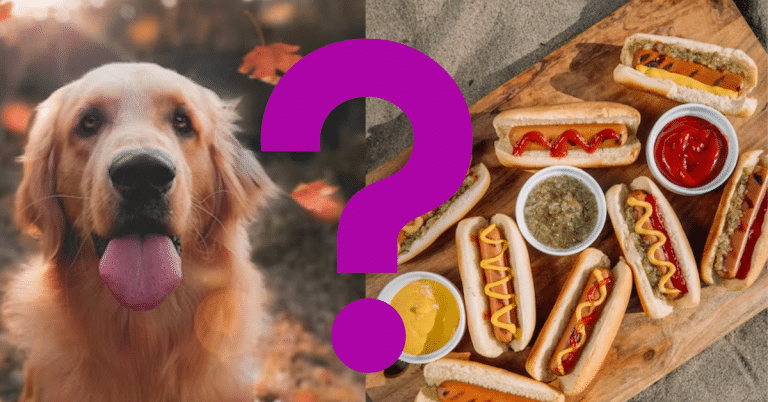Can Dogs Eat Deer Meat? A Vet’s Summary

Deer meat is a great source of protein, but can dogs eat deer meat?
Deer meat can be a good source of lean protein and is generally safe for consumption. Venison, or deer meat, is a common ingredient in commercial dog foods. Even though deer meat is a good source of protein, it’s crucial to make sure your dog’s diet is balanced in general. To make sure it satisfies your dog’s nutritional needs, think about speaking with a veterinarian.
Let’s dive in:
Benefits of deer meat for dogs
When given to dogs as part of a proper and balanced diet, deer meat, commonly referred to as venison, can provide several advantages. Here are a few possible advantages:
- High-Quality Protein: Dogs need high-quality protein for healthy muscle growth and maintenance as well as overall wellbeing. Deer meat is a good source of this protein.
- Lean Meat: Since venison is frequently leaner than other meats, it’s a good source of protein for dogs who might benefit from a low-fat diet. Dogs suffering from certain medical conditions, like pancreatitis, may benefit from this.
- Rich In Nutrients: Iron, zinc, and B vitamins (particularly B12 and niacin) are among the vital nutrients found in deer meat that support a dog’s general health.
- Hypoallergenic Option: Common protein sources like beef or chicken may cause allergies or sensitivities in certain dogs. Feeding venison to dogs with food allergies or sensitivities may be advantageous because it is regarded as a novel protein.
- Omega-3 Fatty Acids: Found in deer meat, these fatty acids support joint health and are beneficial to skin and coat health.
- Low In Additives: Compared to some commercial meats, wild game such as deer are less likely to contain hormones, antibiotics, or other additives.
- Variety In Diet: To guarantee that a dog gets a wide range of nutrients, provide them with a selection of protein sources. Diversifying the diet can be achieved by alternating venison with other meats.
Despite these advantages, it’s crucial to stress balance and moderation in your dog’s diet. A full and balanced diet should contain a variety of proteins, fats, carbohydrates, vitamins, and minerals, even though deer meat can be a nutrient-dense addition.
Before making any big dietary changes for your dog, always get advice from your veterinarian. This is especially true if you’re thinking about adding new protein sources to his diet, like deer meat. To further reduce the possibility of parasites and illnesses that may be present in raw or under-cooked meat, make sure the meat is cooked through.

How to safely give deer meat to dogs?
It’s crucial to feed deer meat, or venison, to your dog in a safe manner to protect their health and wellbeing. The following are some rules to abide by:
- Cook The Meat To Perfection: Before giving deer meat to your dog, it should always be cooked. Cooking lowers the chance of disease transmission and helps get rid of parasites. Make sure the meat is cooked through, which is usually done at 165°F (74°C).
- Take Out The Bones: Before giving your dog any deer meat, remove all the bones. Cooked bones can cause digestive problems or splinter, posing a choking hazard.
- Steers Clear Of Seasonings: The deer meat should not have any sauces, seasonings, or spices added to it. Dogs don’t require extra flavorings, and certain seasonings may even be dangerous.
- Present Gradually: Introduce deer meat to your dog gradually and in small amounts if it’s a new protein source for them. This enables you to keep an eye out for any allergic reactions or upset stomach.
- Observe For Allergic Responses: Keep an eye out for any symptoms of an allergic reaction in your dog, such as swelling, itching, or stomach problems. Consult your veterinarian and stop feeding deer meat if you observe any negative reactions.
- Maintain Dietary Balance: Although it can be a nutritious addition, deer meat should only be consumed as part of a full, well-balanced diet. Make sure that your dog’s diet provides the right balance of fats, proteins, carbohydrates, vitamins, and minerals to meet their needs.
- Get Advice from Your Vet: See your veterinarian before making any big dietary changes for your dog, particularly if you’re adding a novel protein source like deer meat. They can offer tailored guidance according to your dog’s age, health, and particular dietary needs.
- Steer Clear Of Potentially Risky Wild Game: If you hunt or obtain deer meat from the wild, be mindful of possible hazards like illnesses and parasites. If you are concerned, speak with a veterinarian and take the appropriate safety measures.
Keep in mind that each dog may have unique nutritional requirements and tolerances, so what suits one dog may not be good for another. Your dog’s safety and wellbeing should always come first. If you have any questions or concerns, speak with your veterinarian.
Will deer meat make a dog sick?
Although venison, or deer meat, can be a wholesome and nourishing source of protein for dogs, there are certain risks that could result in a dog becoming ill. Here are some things to think about:
- Diseases And Parasites: Dogs can contract diseases and parasites from wild animals, such as deer. While fully cooking the meat lowers the risk, it does not completely remove it. The risk is reduced if the deer meat is prepared correctly and comes from a reputable source.
- Deer bones have the potential to splinter and present a choking hazard or cause gastrointestinal blockages, particularly when they are cooked. It is imperative that you remove all bones before giving your dog deer meat.
- Allergies And Sensitivities: Certain proteins, such as deer meat, may cause allergies or sensitivities in some dogs. To watch for any indications of allergic reactions or stomach distress, introduce it gradually.
- Dietary Imbalance: Nutritional imbalances may result from feeding solely deer meat without a well-balanced diet. For general health, dogs require a variety of proteins, fats, carbohydrates, vitamins, and minerals.
- Contamination: There’s a chance that bacteria or environmental pollutants could contaminate deer meat that comes from the wild. To reduce these risks, handling, cleaning, and cooking must be done properly.
To lessen the possibility of making your dog ill, adhere to these recommendations:
- Cook Until Deadly: To eradicate parasites and lower the chance of disease transmission, cook the deer meat until it is tender.
- Always take out the bones from meat before giving it to your dog.
- Introduce Gradually: If your dog isn’t already eating deer meat, introduce it gradually and keep an eye out for any negative reactions.
- Make sure your dog’s diet is balanced and meets their nutritional needs by including deer meat.
- See a veterinarian: For individualized guidance, consult your veterinarian if you have any questions or concerns regarding giving your dog deer meat.
Since each dog is unique, some may be more able to handle deer meat than others. It’s critical to understand the specific dietary and health requirements of your dog and to keep an eye on how they respond to new foods. See your vet right away if your dog exhibits symptoms of illness or discomfort following ingestion of deer meat.

A Vet’s Summary
Veterinarians may differ on whether to feed deer meat to dogs, and it frequently depends on the dog’s health, the circumstances of each case, and the specifics of the diet. The following are some general things a vet might think about:
- Diseases And Parasites: Because wild game, including deer, can carry parasites and diseases, veterinarians may advise caution. Cooking thoroughly is necessary to reduce these risks.
- Nutritional Content: Venison is an excellent source of lean protein, and it’s even an ingredient in some commercial dog foods. Veterinarians may stress the value of a well-balanced diet, though, to make sure dogs get all the nutrients they require.
- Veterinarians frequently advise against giving cooked bones to dogs because they can break and injure them. Vets may advise removing any bones found in deer meat.
- Veterinarians may consider the possibility of allergies or sensitivities to novel proteins. A dog’s introduction to deer meat should be done gradually and under veterinary supervision if the dog has a history of food allergies.
- Preparation And Sourcing: Due to the risk of contamination and unidentified conditions, veterinarians may advise against feeding dogs’ game that has been hunted in the wild. It is generally thought to be safer to purchase meat from a reliable and licensed supplier.
- Individual Health Conditions: The veterinarian will consider the dog’s particular health issues. For instance, a low-fat diet may be advised, and the leanness of venison may be advantageous if a dog has pancreatitis.
- Consultation: Generally, before making big dietary changes for dogs, veterinarians advise pet owners to speak with them. They can offer advice based on the dog’s nutritional requirements, state of health, and any possible dangers connected to foods.
In some cases, probiotics can be helpful for dogs. Live microorganisms known as probiotics have the potential to improve health when given in sufficient quantities. They can support the preservation of a balanced population of microflora in the digestive system and are frequently referred to as “good” or “friendly” bacteria.
It’s crucial to remember that, depending on their education and experiences, various veterinarians may have distinct viewpoints. It’s best to speak with your veterinarian if you’re thinking about feeding your dog deer meat or if you have any concerns. They can offer guidance based on the requirements and situations of your dog.
Videos to watch
If you are wondering whether dogs can eat deer meat, watch this:
If you are wondering what type of meat are good for dogs, watch this:






